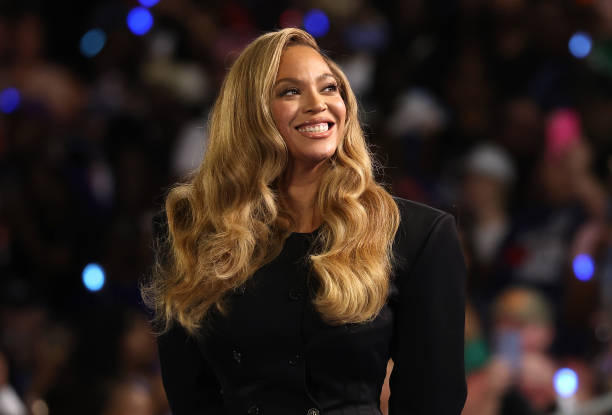In what might be the most unexpected academic plot twist of the year, Yale University has reportedly dropped its much-hyped course, “Beyoncé Makes History: Black Radical Tradition History, Culture, Theory & Politics through Music,” following an intense wave of backlash. The course, initially slated to debut next semester, aimed to dissect Beyoncé’s groundbreaking career and its intersection with Black history, politics, and culture. However, the university’s decision to shelve the class has left students, faculty, and the Beyhive wondering: did academia just miss the point, or did it finally draw the line?
The course, led by celebrated African American Studies professor Daphne Brooks, was poised to explore Beyoncé’s evolution as an artist, cultural icon, and political figure from her 2013 self-titled album to her 2024 opus, Cowboy Carter. The syllabus promised an intellectual deep dive into Beyoncé’s work, linking her aesthetic innovations to Black feminist theory, grassroots activism, and intellectual traditions.
“Beyoncé represents a once-in-a-generation kind of cultural genius,” Brooks said in a press release last month. “This course was designed to give her work the academic rigor it deserves.”
Yet, within days of the announcement, the backlash was palpable. Critics accused Yale of pandering to pop culture trends at the expense of academic integrity. Social media lit up with memes like, “Yale: Where You Pay $80K a Year to Major in Beyoncé Studies” and “Can I Write My Thesis on Destiny’s Child’s Bills, Bills, Bills?”
Traditionalists within the academic world piled on, with one tenured professor anonymously describing the course as “fluff disguised as academia.” Even Yale alumni weighed in, questioning whether Beyoncé’s artistry warranted a place alongside Shakespeare, Plato, and Toni Morrison.
Yale’s administration initially defended the course, citing its popularity and interdisciplinary depth. But as the criticism grew, university officials faced mounting pressure from donors, alumni, and the media. By Friday, the university quietly announced that the course would not proceed as planned.
“While we respect the creative vision of Professor Brooks, Yale must ensure that its courses reflect the highest academic standards and avoid unnecessary polarization,” a university spokesperson said in a statement. “We believe the course as proposed did not align with those standards.”
Sources close to the administration suggest that financial pressure played a significant role in the decision. Several high-profile donors reportedly threatened to withhold contributions, questioning why Yale would devote resources to what they deemed “pop-star worship.”
For many students, the decision to cancel the course feels like a missed opportunity to engage with a unique cultural phenomenon. Within hours of the announcement, students organized a protest on campus, chanting, “If we can study Beethoven, why not Beyoncé?” and holding signs like “Put Some Respect on Her Name” and “Lemonade Deserves a Lecture.”
“This was more than just a class about Beyoncé,” said Maya Thompson, a junior majoring in African American Studies. “It was about examining how Black women have shaped history and culture in ways that are often overlooked. Canceling the course feels like silencing those contributions.”
Others took a more lighthearted approach, with one student joking on Instagram, “Guess I’ll just have to write my term paper on Renaissance in my spare time.”
The controversy has exposed a rift within Yale’s faculty, with some professors defending the course and others questioning its academic legitimacy. Supporters argue that Beyoncé’s work, much like that of Bob Dylan or James Baldwin, warrants serious scholarly attention.
“If we can study how Beethoven revolutionized music in his time, why can’t we study how Beyoncé is doing the same today?” asked one faculty member. “This isn’t about pop music—it’s about understanding the social and cultural forces that shape our world.”
Critics, however, remain unconvinced. “There’s a difference between appreciating Beyoncé as an artist and elevating her to the status of a subject worthy of Ivy League study,” one skeptical professor said. “Are we going to start offering courses on TikTok influencers next?”
Unsurprisingly, Beyoncé’s fanbase—the legendary Beyhive—has not taken the cancellation lightly. Fans flooded social media with messages of support for the course and sharp critiques of Yale’s decision. The hashtag #BeyonceDeservesBetter began trending on X (formerly Twitter), with fans pointing out that Beyoncé’s cultural impact far surpasses that of many historical figures studied in academia.
“Y’all can teach entire courses on dead white men who wrote sonnets, but not on a Black woman redefining music, culture, and activism in real time?” one user posted. “Make it make sense.”
Some fans even suggested alternative venues for the course, with one posting, “If Yale won’t teach it, Howard or Spelman will. Watch.”
The cancellation of the Beyoncé course raises broader questions about the role of pop culture in higher education. Can academia afford to dismiss contemporary cultural icons, or does doing so risk making institutions like Yale feel increasingly out of touch?
Cultural historian Dr. Angela Reid argues that the backlash to the course reveals a deeper tension within academia. “Universities are often reluctant to embrace new forms of cultural expression as legitimate subjects of study,” she said. “But ignoring the significance of someone like Beyoncé, whose work intersects with race, gender, politics, and history, is a missed opportunity to engage with the world as it is now.”
Others, however, worry about the slippery slope. “Once you open the door to Beyoncé, where does it stop?” asked one critic. “Are we going to see courses on Taylor Swift’s ex-boyfriends or the Kardashians’ contribution to reality TV?”
For now, it seems the Beyoncé course will remain an ambitious footnote in Yale’s history rather than a fully realized academic offering. But its cancellation has sparked a larger conversation about who gets to define “serious” scholarship and why.
In her final comments about the controversy, Professor Brooks remained optimistic. “The decision to cancel the course is disappointing, but it doesn’t erase the value of Beyoncé’s work or the importance of studying Black women’s contributions to culture,” she said. “If anything, it highlights how much work there is still to do.”
And for those hoping to study Beyoncé in an academic setting, all is not lost. Brooks hinted that she might offer a scaled-back version of the course in the future or collaborate with another institution. “Beyoncé’s impact isn’t going anywhere,” she said with a smile. “And neither is the conversation about it.”
As the dust settles, one thing is clear: Beyoncé may not have a course at Yale, but she’s certainly made history there.


